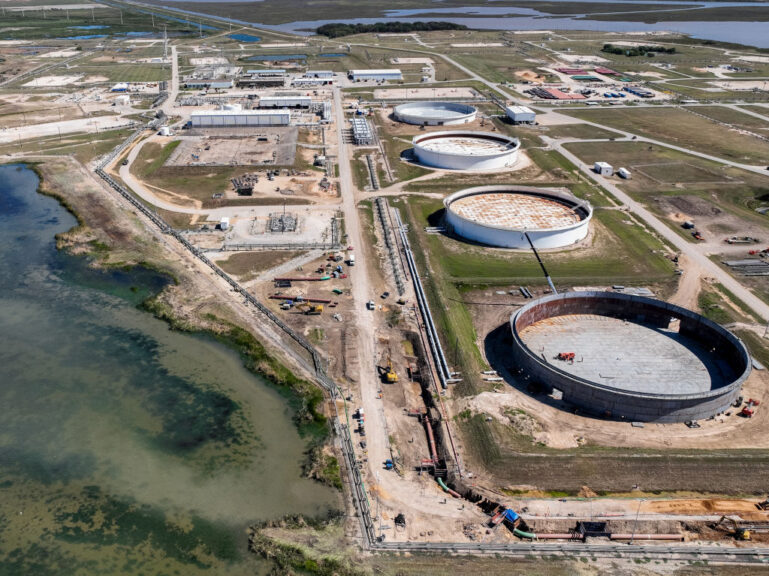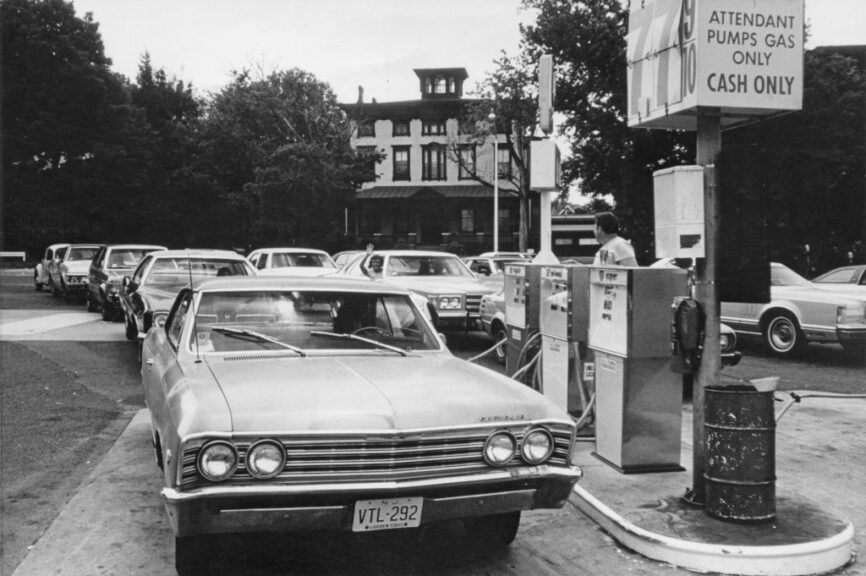Despite the best efforts of the Biden administration to move toward green alternatives, oil remains a vital commodity to not only the American economy but also global civilization in general. Easy access to the substance can be the deciding factor between a country’s prosperity and its descent into chaos and poverty.
On Tuesday, the Biden administration announced that it had canceled plans to help refill the Strategic Petroleum Reserve, citing a rise in crude oil prices to $85 a barrel. The government had previously announced in March that it would solicit up to 3 million barrels for a facility in Louisiana as part of its efforts to resupply the SPR.
The Energy Department claimed to be “keeping the taxpayer’s interest at the forefront.” The agency said, “We will not award the current solicitations for the Bayou Choctaw SPR site and will solicit available capacity as market conditions allow,” adding, “We will continue to monitor market dynamics.”
In an attempt to stimulate skyrocketing gas prices in the wake of the COVID-19 pandemic, the Biden administration initiated a 180-million-barrel drawdown of the SPR in 2022, decreasing the reserve to its lowest level in decades. Since that drawdown, Biden has slowly purchased more oil, around 32 million barrels, but the reserve is still well below where it was before Biden took office.

Brandon Bell/Getty Images
The SPR currently stands at 363.6 million barrels according to recent data, down from around 600 million barrels in late 2021 and nearly half the authorized storage capacity of 714 million barrels.
Though the administration’s decision on the SPR was received passively by the mainstream media, it’s actually a pretty massive deal for those who remember why it was created in the first place.
The SPR, “the world’s largest supply of emergency crude oil,” was established in 1975 specifically to “reduce the impact of disruptions in supplies of petroleum products” in the wake of the oil crisis of the mid-1970s, the Energy Department notes.
In retaliation for supporting Israel during the Yom Kippur War in October 1973, the Arab-dominated OPEC (Organization of the Petroleum Exporting Countries) imposed an embargo on oil exports to the United States. Within a year, the price for a barrel of oil in the U.S. quadrupled, and the nation suffered its first oil shortage since World War II.
In response, the federal government lowered the national speed limit to 55 mph in order to reduce oil consumption, several states imposed rationing schemes, and gas lines became common. One common scheme to control gas consumption was to only allow cars with license plates that ended in an odd number to refuel on an odd day of the month, and vice versa for cars with license plates ending in an even number.

Frederic Lewis/Archive Photos/Getty Images
The U.S. economy shrank by an estimated 2.5% because of the crisis. Though the embargo was ended after negotiations between the U.S. and OPEC in March 1974, the surge in prices and unemployment contributed to the stagflation the plagued the U.S. economy for the rest of the decade.
After it was established in 1975, the SPR was quickly stocked throughout the 1980s, remaining relatively stable during the next three decades and even reaching a high of over 715 million barrels around 2010.
The oil crisis also motivated the government to encourage more domestic oil production, reducing the nation’s reliance on OPEC oil from around 70% of total oil imports in the early ’70s to around 16% today. The U.S. also sources a majority of its oil imports from Canada. Still, the U.S. imports over 8 million barrels of oil per day from around the world, according to the Energy Information Administration, and as shown by the global supply chain disruptions seen during the pandemic, global events can still wreak havoc on domestic prices.
The SPR was not intended to be used as the president’s oil piggy bank — broken open to drive down gas prices and shore up his party’s chances in the upcoming midterms. It’s there to stave off the gas lines that marked the 1973 oil crisis and keep the military machine going in the event the nation is cut off from overseas oil.
A full-scale conflict in the Middle East — home to major oil exporters like Iraq and Saudi Arabia — or a war between the U.S. and China in the Pacific would certainly sow discord in global trade. If global tensions continue to escalate and the SPR remains understocked, the president threatens to leave the nation disastrously short of a critical product for a significant length of time.

Continue reading this exclusive article and join the conversation, plus watch free videos on DW+
Already a member?

.png)
.png)

